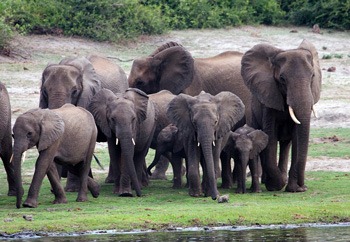Kimmela Delivers the Science to the Nonhuman Rights Project

The Kimmela Center has joined with the Nonhuman Rights Project (NhRP) to work toward the common goal of gaining basic rights for animals. The Nonhuman Rights Project, led by prominent animal rights attorney Steven Wise, is working to change the common law status of large-brained, socially complex nonhuman animals from legal “things” or “property” to “persons”, for whom fundamental rights like the right to bodily liberty and bodily integrity are not yet recognized.
Nonhuman animals need to be recognized as having certain fundamental rights, and these can only be enforced through a transformation in the eyes of the law from “property” to “persons”. As a legal person, a nonhuman being’s basic rights would be protected, and if the NhRP is successful it will be a real game-changer in our relationship to other animals.
This work will demonstrate that these animals have the cognitive characteristics that qualify them for common law personhood.
As the NhRP’s Science Director, Kimmela Executive Director Lori Marino has recruited a sizeable team to gather the scientific evidence the NhRP will need to bring its cases in 2013. The international science team is comprised of a group of volunteers ranging from students to librarians to university faculty members who have expertise in the fields of animal behavior and intelligence and online databases. The team is conducting a massive online search of all the relevant, peer-reviewed, scientific research on cognition (i.e., intelligence, self-awareness, emotion, social complexity, and brain size and complexity) in species that are under consideration for NhRP cases. These include the great apes, several cetacean species, and elephants. This work will allow the legal team to demonstrate that these animals have the cognitive characteristics that qualify them for common law personhood.
The research base will also comprise the basis for educational outreach initiatives to professionals and students, media and the general public about the cognitive abilities of these animals.
The first phase of their work – searching and archiving all the scientific papers available – will be completed by the end of December. The materials will then be compiled into a searchable bibliographic database that the legal team can access easily as they prepare to go to trial.
We will keep you posted on the NhRP Science Team’s efforts and accomplishments.
By this time next year we may be close to the day when a dolphin or chimpanzee cannot be owned, held captive, or harmed.
One Reply to “Kimmela Delivers the Science to the Nonhuman Rights Project”
Comments are closed.

[…] of these two events represents a potentially transformative effort towards actual enforceable rights for nonhuman beings, and the other represents a fall back to the […]